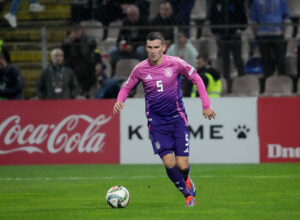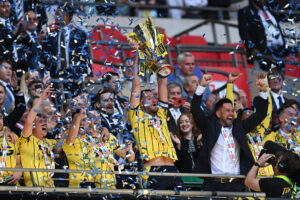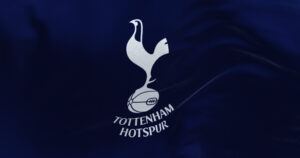After months of should-they shouldn’t-they and debates, Borussia Dortmund have finally opted to dismiss manager Lucien Favre. The Swiss always divided opinion in his time at Signal Iduna Park, some seeing him as inadequate for Dortmund’s ambitions, even calling him a truck driver at the wheel of a Porsche.
After Dortmund suffered a harrowing 5-1 defeat at home to Stuttgart in the Bundesliga, the board decided they’d had enough of the driver. After two-and-a-bit seasons, Die Schwarzgelben have called time on their relationship with the former OGC Nice boss.
Lucien Favre Had Run His Course
First Season at Dortmund
When Favre was appointed Dortmund manager in the summer of 2018, the club were badly in need of a change. They’d started the previous season by hiring former Ajax manager Peter Bosz to fill the role left by the departure of Thomas Tuchel. Despite six league wins from their first seven games – with 21 goals scored – form nosedived under Bosz, and by December, he was dismissed.
In came Peter Stoger, a somewhat bewildering choice, given he had left Köln at the bottom of the Bundesliga a few weeks earlier. Displays under Stoger were stoic and rigid, and in the end, Dortmund finished the season in fourth place, scraping into the UEFA Champions League places ahead of Bayer Leverkusen on goal difference.
With Favre in charge, Dortmund only lost once in the Hinrunde – the first half of the Bundesliga season. They dropped just nine points from the first 17 games, beating champions Bayern Munich and thrashing fellow challengers RB Leipzig. But despite not suffering a second league defeat until the beginning of March, they faltered and Bayern Munich waltzed in to win the title.
Dortmund’s Second Season Under Lucien Favre
Favre stayed on after that collapse, to the chagrin and disapproval of a few. Dortmund signalled their intent to go for the title with their transfer business, even though they didn’t publicly declare a league challenge. The Ruhr club signed Julian Brandt, Thorgan Hazard, Nico Schulz, and former centre-back Mats Hummels in the off-season, while Emre Can and wonderkid Erling Haaland joined during winter.
Once again, however, it was a case of so near but so far for Dortmund and their manager. They were very much in the title race for most of the season but started to slip after the COVID-19 lockdown, when they went from being four points behind Bayern to finishing 13 points adrift and just six points above fifth-placed Leverkusen, now coached by old friend Bosz. Dortmund had two seasons with a genuine shot at the title, with Bayern not being wholly convincing in either year, but missed their window.
Favre’s Managerial Patterns
One of the reasons for the criticism and scepticism over Favre is his previous, particularly with Borussia Monchengladbach. When Favre took charge at Gladbach in February 2011, they were bottom of the Bundesliga, having sacked Michael Frontczek, and were heading for the second division. They were still bottom with four league games left but managed three wins from those next four matches, and eventually stayed up by winning the promotion-relegation play-off.
Favre built on that, and finished fourth the following season, earning his side a Champions League play-off place. In the four seasons that followed their escape in 2011, Gladbach never finished lower than eighth place, and in one of those seasons, Favre was named manager of the year. But in 2015/16, Die Fohlen started the season horribly, and by autumn, Favre was gone, having failed to arrest the slide.
That’s the criticism with the Favre. He has shown he has a ceiling, a not-so-big one at that, and once his teams peaked, they would start to fall back down. There was no evidence to say he knew how to stop declines. One could say Dortmund hit that ceiling at the end of his first season, and there have been times since when Favre looked lost on the touchline, waiting for the axe to swing.
What Do Dortmund Do Post Lucien Favre?
Favre may have his critics, and there are a few, but he’s by no means a bad manager. He displays characteristics of being the guy before the guy. Gladbach have managed to build on some of his foundations, and look in great nick under Marco Rose (even though they had two managers between Favre and Rose). He set a bar high at French side Nice, which successor Patrick Vieira didn’t quite match and has been sacked as a result.
While it didn’t look like he could take Dortmund any farther, there are still building blocks there. It’s up to Dortmund to get this next appointment right and get someone who can truly augment the great talent they already have. Rose looks like a great option – and has been touted as a potential replacement – as does RB Leipzig boss Julian Nagelsmann, and currently unemployed Mauricio Pochettino. But all those three are likely to have higher ambitions, and the two in a job have their teams in great stead.
By sacking Favre, Dortmund have done the first bit and signalled their intent to be more than what they are now. The next phase is convincing a manager with ambitions matching theirs that this is their next stop.
Main Photo






